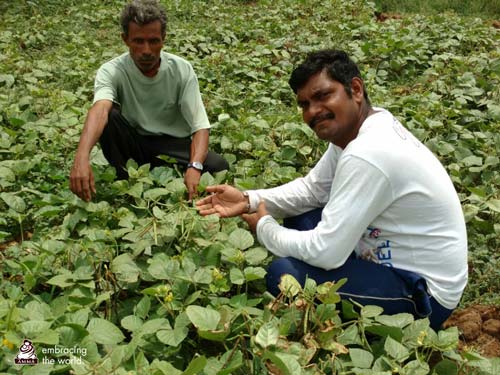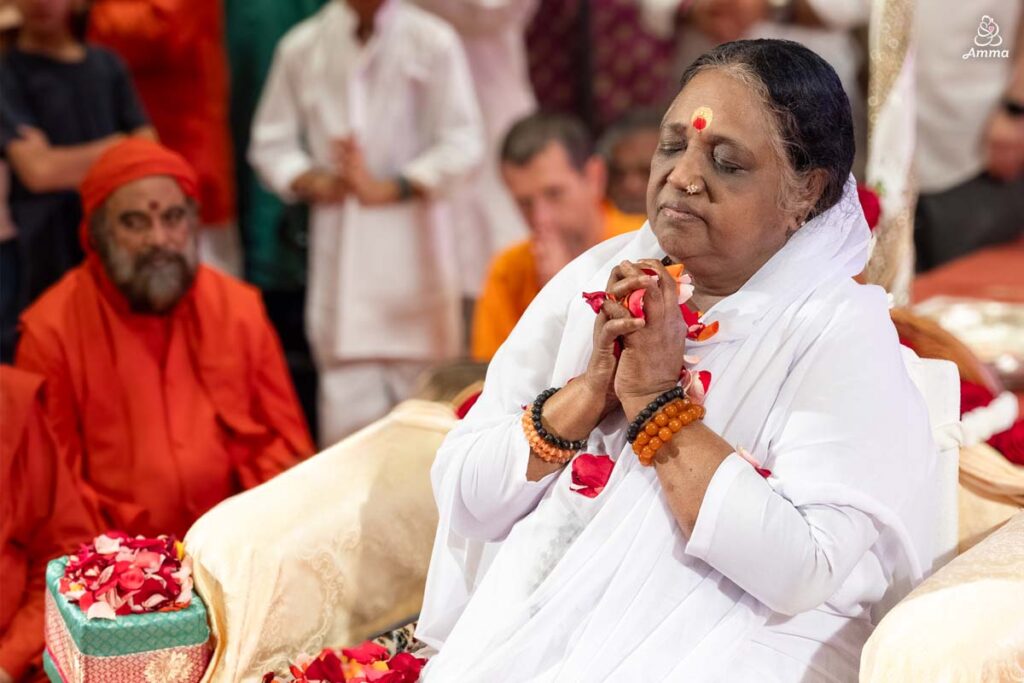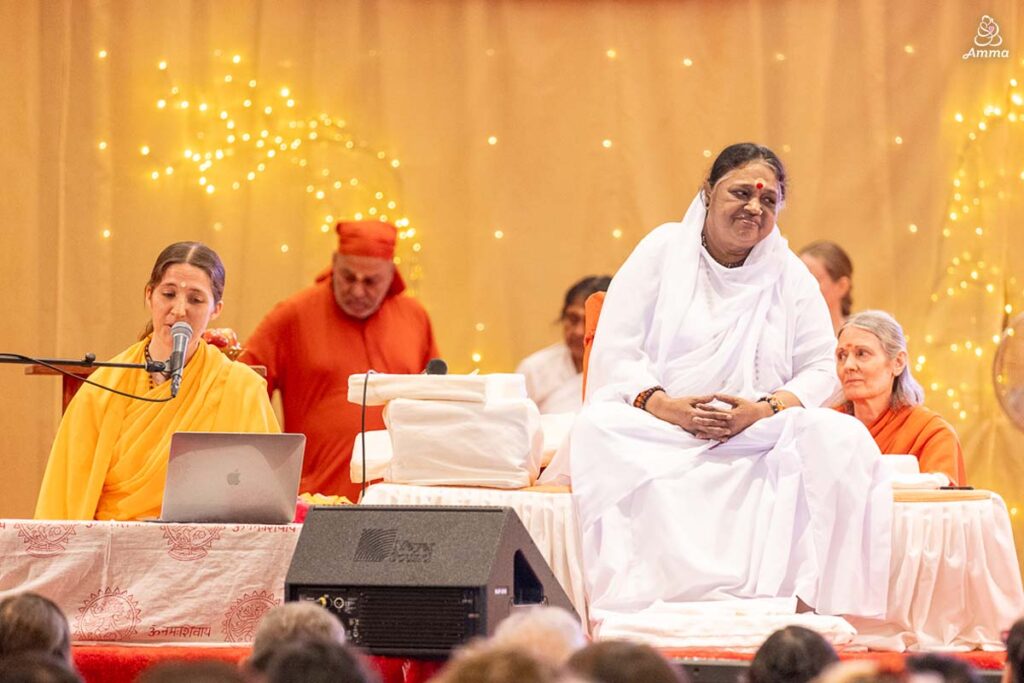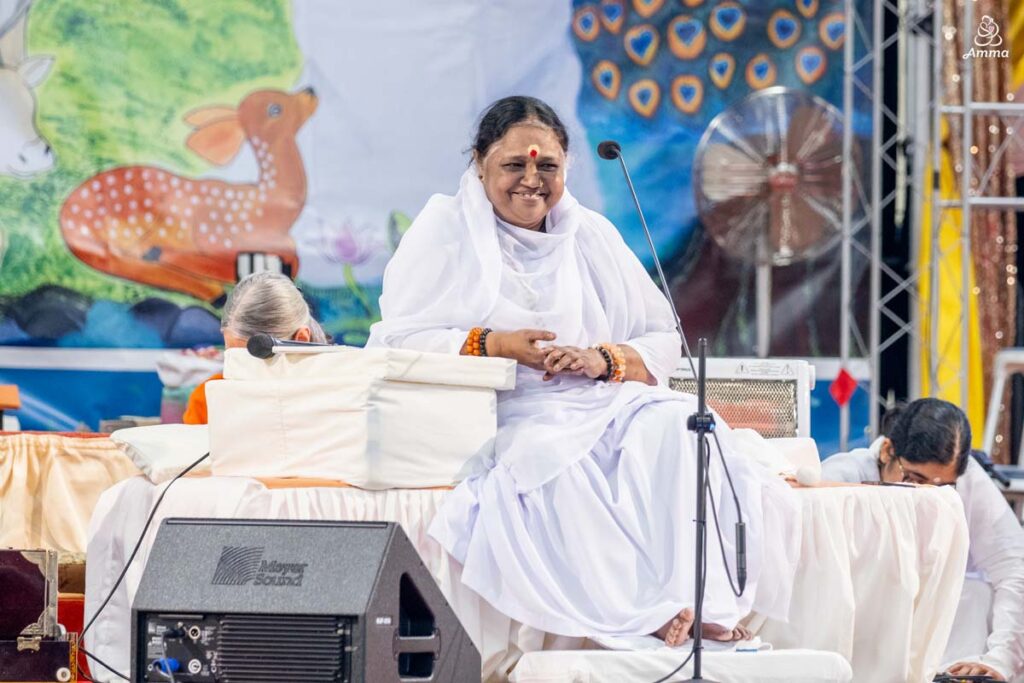A key focus of Amrita SeRVe is to promote organic farming in developing nations.
Recently, the International Assessment of Agricultural Knowledge, Science and Technology for Development (IAASTD), a collaboration of experts from over 100 countries, concluded that the security of the global food supply depended on small farmers practicing organic agriculture in developing nations. The IAASTD report noted that the transition to organic farming was a necessary step, not only to ensure food security, but to combat climate change as well. Manufacturing and distributing chemical pesticides and fertilizers not only pollutes soil and water resources, but also produces massive amounts of greenhouse gas emissions.
Unfortunately, many small farmers in developing nations are hesitant to transition away from their traditional input-intensive chemical agriculture, partly because organic agriculture can produce lower yields initially and can require up to three years to repair soils that have been degraded by farming chemicals. This is why Amrita SeRVe has chosen to promote organic farming among such farmers.
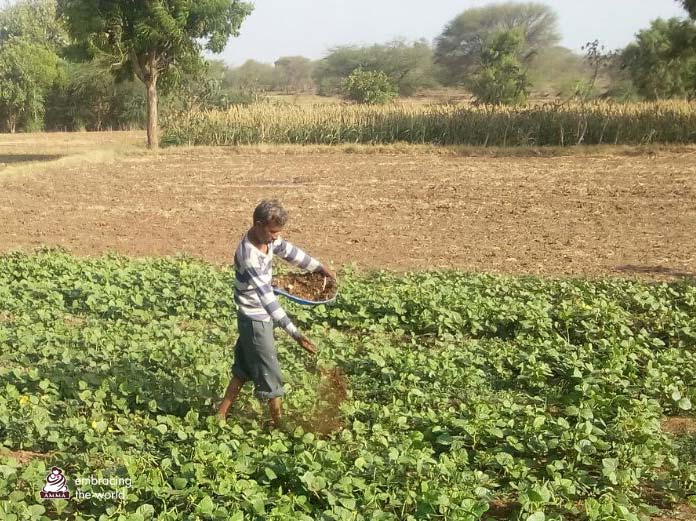
Amol Motghare is our Amrita SerVe coordinator in Nani Borwai, a small village 70 km from Ahmedabad, Gujarat. Amol has been trained in modern organic farming methods, and he recently conducted a workshop on organic agriculture in the village to share this knowledge. As a result, Nani Borwai quickly became an exemplary site in our ongoing sustainable development project.
Harish Bhai Parmar is the largest land-owning farmer in the village. Like most small farmers in India, Harish buys chemical pesticides, fertilizers, and seeds at the start of every planting season. But after attending Amol’s workshop on organic agriculture, Harish decided to experiment with organic crops on a small patch of land last season. Harish replaced his ordinary chemical fertilizers and pesticides with organic Jiwamritam and Ghanamritam in the experimental patch.
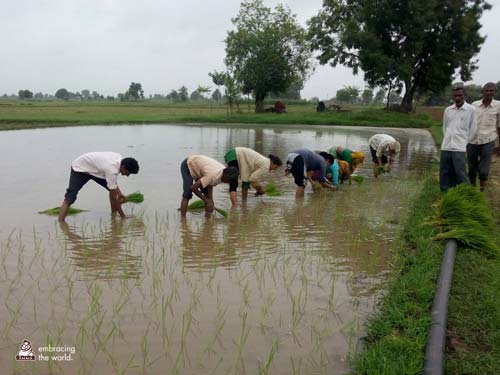
Harish cultivated Moong beans (green gram), and had soon harvested his first healthy organic crop. Despite a limited yield, Harish was content with the quality of the harvest. This season, he has dedicated a greater portion of his land to cultivating organic rice paddy, which is the village’s first organic rice crop ever.
Thanks to the brave efforts of Harish and others, committed AmritaSerVe Fellows like Amol can help pave the way to sustainable development in Nani Borwai and other villages. We hope that these examples will inspire many more to embrace the noble path of global stewardship through organic farming.


